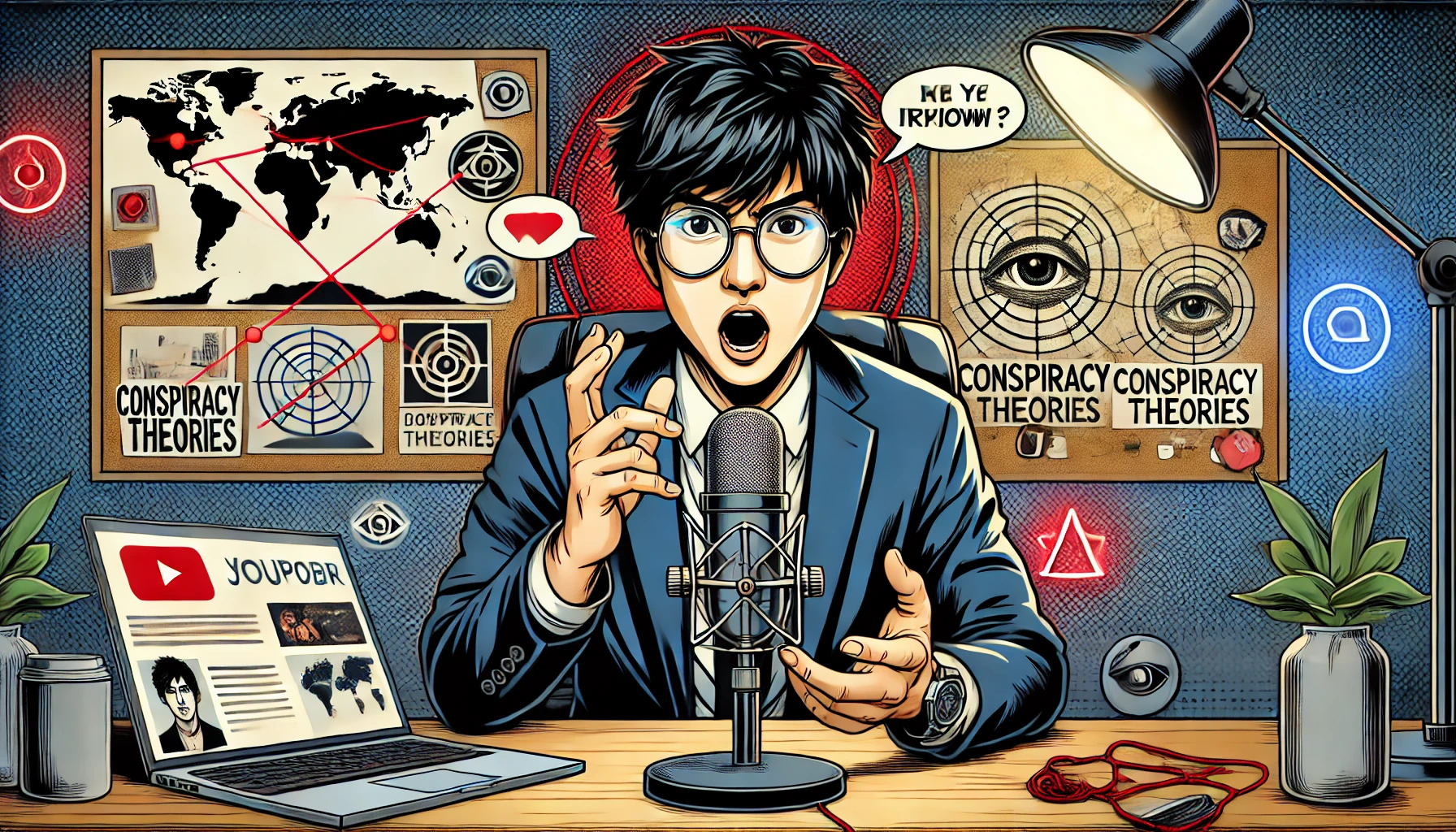
In Japan’s growing online culture of alternative media, one YouTuber has captured widespread attention by blending entertainment, mystery, and just the right amount of conspiracy: Naokiman Show (ナオキマンショー). With over 2.3 million subscribers and a uniquely calm, narrative style, Naokiman has become a leading figure in Japan’s world of “soft conspiracy content.” But why exactly is he so popular—and where does the line between entertainment and political messaging begin to blur?
🧠 Who Is Naokiman?
Naokiman, a bilingual Japanese-American, first rose to domestic fame around 2017, but his popularity exploded after it was rumored that he received an invitation to Donald Trump’s presidential inauguration in Washington D.C. This curious event gave him sudden legitimacy in the eyes of both conspiracy fans and mainstream media-watchers.
Rather than delving into extreme or unverified theories, his content tends to cover:
- Secret societies (e.g. Illuminati, Freemasons)
- UFOs and alien civilizations
- Spiritual experiences and the afterlife
- Government secrets and paranormal stories
- Recent scientific mysteries with a fringe twist
📈 Subscriber Growth and Audience Appeal
Naokiman’s growth was especially strong during the pandemic years, when many Japanese people were stuck at home, seeking both escapism and alternative explanations for a confusing world. His YouTube analytics show:
- Over 2.3 million subscribers
- Average video views exceeding 300,000
- A primary viewer base of 20–40 year olds, both men and women
- Strong engagement from those with interest in spirituality, mystery, and pop-science fiction
Rather than radicalizing his viewers, Naokiman’s videos often feel like watching a late-night ghost story—a controlled environment for exploring curiosity, not a rabbit hole.
🎭 Entertainment vs. Political Conspiracy
One of the most unique aspects of Naokiman Show is its tone: warm, non-aggressive, and open-ended. He doesn’t insist on truth, but invites speculation. This makes his content distinctly non-threatening, unlike some Western conspiracy influencers who aim to radicalize or polarize.
However, questions have been raised as to whether repeated exposure to certain narratives (e.g., “hidden elites controlling the world”) may unconsciously shape political attitudes. The Trump inauguration connection sparked curiosity because it added a political layer to an otherwise apolitical channel.
Still, for most fans, Naokiman represents a form of storytelling, not activism. His channel rarely references domestic Japanese politics directly, which helps it stay palatable for a wide audience.
🌍 Why Japan Loves Naokiman
In Japan, where discussing politics publicly often feels taboo, Naokiman offers a safe space for exploring “unseen forces” without taking sides. His smooth delivery, handsome looks, and gentle humor make him feel like a friend, not a provocateur.
In a way, Naokiman has done what many others couldn’t—he made conspiracy theories feel cozy.
👁️ Final Thoughts
The Naokiman Show is not just about conspiracies—it’s about how people cope with the unknown. In a world where trust in governments, media, and institutions continues to decline, content like his provides emotional relief and a shared sense of wonder.
Whether you see it as dangerous or delightful, Naokiman has become a cultural phenomenon in Japan’s digital age. As long as curiosity exists, his channel will likely continue to thrive.



















































